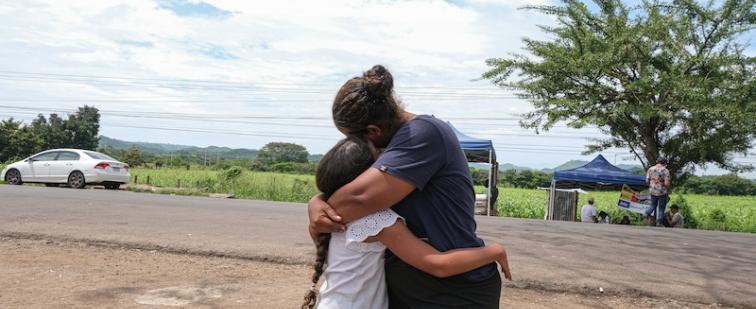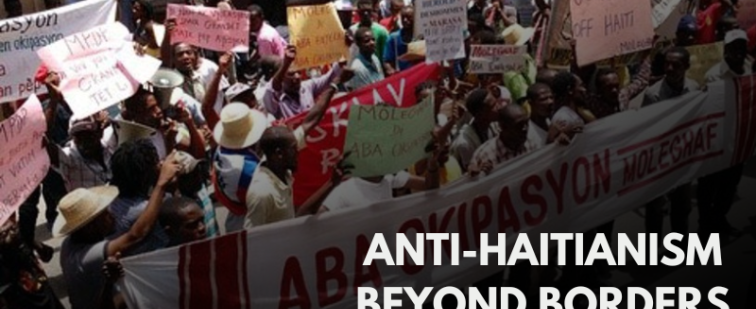Home
Latin America has been the cutting edge of struggles worldwide against neoliberalism. Several alternatives to the dominant model of global capitalism appear to be emerging in the region. A new model of revolutionary struggle and popular transformation from below for the 21st century may be emerging, based on the Venezuelan experience, but more broadly, on mass popular struggles in Ecuador, Bolivia, and elsewhere.
Eight years of heroic efforts to punish the ringleaders of Latin America’s worst mass slaughter of the 20th century appeared to come to an anti-climactic end in the last days of 2007. Exonerated by Guatemala’s highest court, two sickly men detained on charges relating to genocide of the country’s Mayan people were discharged from their private military hospital just in time for Christmas.
Barack Obama had a few choice words for Bill and Hillary Clinton after the South Carolina primary, about people who would "say anything and do anything to win an election." Imagine if the U.S media had reported his remarks without ever reporting what the candidate was responding to. (He was reacting to former president Bill Clinton's comparison -- widely seen as racial politicking -- of Obama's South Carolina victory to Jesse Jackson's in the 1980's; and Hillary Clinton's attack ads). It would not be considered acceptable journalism in the United States to omit these key facts. But in U.S. coverage of Latin America, the same standards do not apply.
An analysis of developments in Venezuela under the Chávez presidency sheds light on the viability of policies, movements and struggles in developing countries designed to bring about far-reaching transformation and to challenge domination from the north.
"It appears to us to be a reinitiation of the harassment of independentists."1 —U.S. Congressman José Serrano, speaking to FBI director Robert Mueller
An unexpected knock on the door . . . men in trench coats handing you a grand jury subpoena . . . . If you're involved in the movement for the independence of Puerto Rico, this isn't just a not-so-fond memory of the COINTELPRO era. It's 2008 in New York City, and you are Christopher Torres, a young social worker; Tania Frontera, a young graphic designer; or Julio Pabón Jr., a young filmmaker from the Bronx.
Media Accuracy on Latin America (MALA) is a project of the North American Congress on Latin America (NACLA), an independent nonprofit organization and publisher of the NACLA Report on the Americas.
NACLA believes that the news media are critical to informing and educating the public to ensure that the decisions we make are based on sound information. Unfortunately, mainstream news outlets in the United States repeatedly fail to provide reliable, in-depth analytic coverage of events and U.S. policy in Latin America and what coverage outlets do provide is often sensationalist, superficial, and permeated by long-standing suspicions that characterize the North-South divide.
The World Economic Forum is held at the beginning of every year; this time from Jan. 23-27. Its usual participants are well-known names from presidents, to prime ministers, from heads of large corporation, to some academics. It’s a space for celebrating and reproducing globalization, and for this it has received serious criticisms from global citizens. We should remember that the World Social Forum began as a counterproposal to Davos, showing that another world is possible.
The ride into Medellín, Colombia, is spectacular, especially at night, when lights sprawl up the western hills about a mile below the mountainsides. There are two ways in from the airport: descending from the southeast via Las Palmas through the city’s greenest, most exclusive and fortified areas (Envigado and El Poblado), or the northeast via Guarne, Zamora, and Playón, the last a peripheral neighborhood in one of the toughest of the city’s 16 wards (comunas).
"There will be violence, there will be clashes.” So said Bolivian opposition lawmaker Fernando Messmer in November, as six of the country’s departments staged a general strike to protest the rewriting of the national constitution. As we go to print, at least three people have been killed in riots on the streets of Sucre, where the Constituent Assembly meets, after right-wing demonstrations turned into riots. The assembly has been meeting for the past year with little to show for its efforts, largely because the party right has managed to gum up the process with dilatory maneuvers and outright obstruction, while its supporters have taken to the streets, often resorting to violence and harassment.
The movement to close the School of the America (SOA) punctures the founding myths of American exceptionalism. These myths include the belief that the United States is committed to democracy for all, that it is essentially good, and that because it is good, the United States only uses its power for virtuous ends. The presumed innocence of the United States and its citizens insures that “we” are always the victims of the violence of others. This historical shortsightedness perpetuates a widespread amnesia about the naked violence that has supported U.S. imperialism and the acceptance of torture by U.S. officials for decades.












